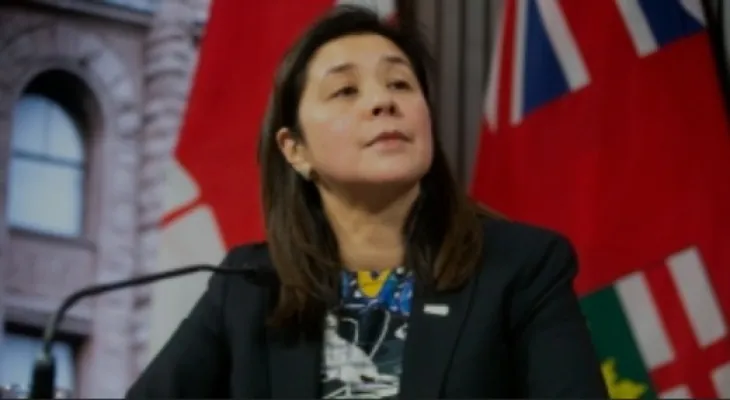Search here
Newspaper
Search here

Arab Canada News
News

Published: December 26, 2022
As the third anniversary of the first confirmed case of the virus in the city of Toronto approaches, Dr. Eileen de Villa acknowledges that the pandemic, which turned life in the city upside down while causing thousands of deaths, has not yet appeared with full force.
De Villa added that although it "fortunately does not cause the same anxiety and fear" as before, it still represents a daily challenge from a public health perspective and could ultimately result in "other catastrophic outcomes."
Before the holidays, CP24.com sat down with Dr. de Villa to talk about the changing nature of COVID-19, and the interview was as follows:
CP24: At this time last year, we were witnessing somewhat rapid spread of the Omicron variant of COVID-19 and preparing for further lockdowns. One year later, it seems that much of the fear many felt during the 2022 holiday season has faded. Are we in a phase of the pandemic where we can at least rely on greater certainty moving forward?
De Villa: My observation over nearly the past three years is that COVID-19 as a virus has always thrown us into a spiral, right? It came in late November, early December, and it was very difficult, where what we saw was a somewhat complicated situation in the continuation of corona spreading, but what we also saw was inactivity of other viruses that had been silent.
CP24: Children’s hospitals in particular really suffered from a rise in respiratory illnesses and influenza, and struggled despite relatively low levels of COVID compared to what we might have seen earlier in the pandemic. Are you concerned about the possibility of another COVID wave on top of all this other viral activity this winter? I know Dr. Moore (the Chief Medical Officer of Health) said last week he envisions another wave in January.
De Villa: You definitely have to hold to that possibility, right? I would caution against predicting, but based on the knowledge we have, it’s not unreasonable to expect there may be more COVID activity and another increase coming in the new year. For me, the basically important part is that we use the knowledge and tools we have. That means vaccination and getting those booster doses now available for every child under five years old, and while we gather with friends and family during the holiday season, we need to make sure we apply protective measures. I know people are tired and want to get past the pandemic, but we haven’t reached that point yet, and this is actually a very reasonable step that can be taken, along with staying home when you’re sick, washing your hands, and opening windows when you can if you are indoors with others you don’t live with.
CP24: You mentioned masking, and of course, this was the year we moved from mandatory orders to the idea that it can be a personal choice. Was that the most delicate message to convey to Torontonians?
De Villa: Yes, I think the challenge really stems from the fact that people are frankly exhausted. And as you know, I don’t think there is one of us who does not want the nightmare of COVID to end. But unfortunately, we’re not there yet. So, that is the real challenge for me, which is encouraging people to continue good behaviors and to use the tools we have to protect ourselves, the people around us, and the healthcare system, but it requires intense effort and it’s difficult for people to maintain this level of energy after nearly three long years of corona.
CP24: Regarding vaccination, Toronto Public Health is still engaged in some very focused efforts to boost COVID vaccination rates. Will we reach a point where the COVID-19 vaccine looks more like the flu vaccine, with a more seasonal dose rather than this kind of broad effort?
De Villa: It is very difficult to make predictions, but what I can say is that pandemics end. When we look back over the course of history, all pandemics end.
CP24: What is your one message to city residents as we approach 2023 and the third anniversary of the city’s first confirmed COVID-19 case in January?
De Villa: It has undoubtedly been three exhausting years. But our ability to leave this behind sooner rather than later means that to the extent we can continue to use the protective tools that have served us and will continue to serve us as we strive to successfully come out of this pandemic. I think the last thing I want to say is to realize we are all exhausted, so let’s be kind to each other and try to be patient.
Comments